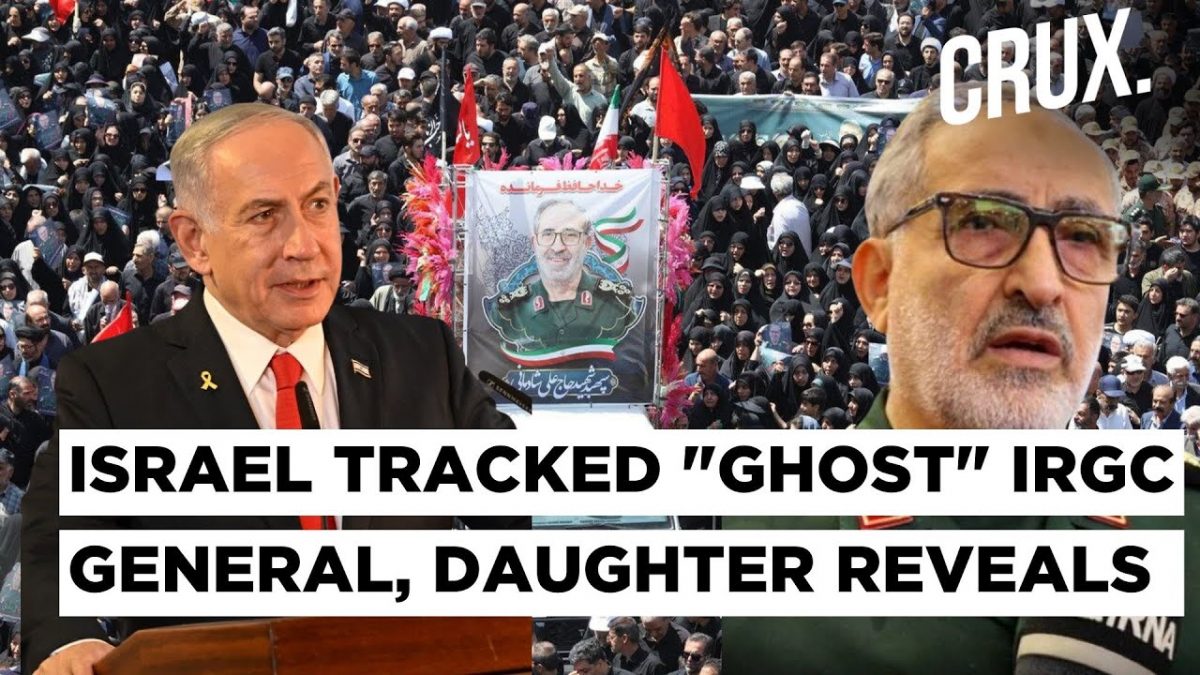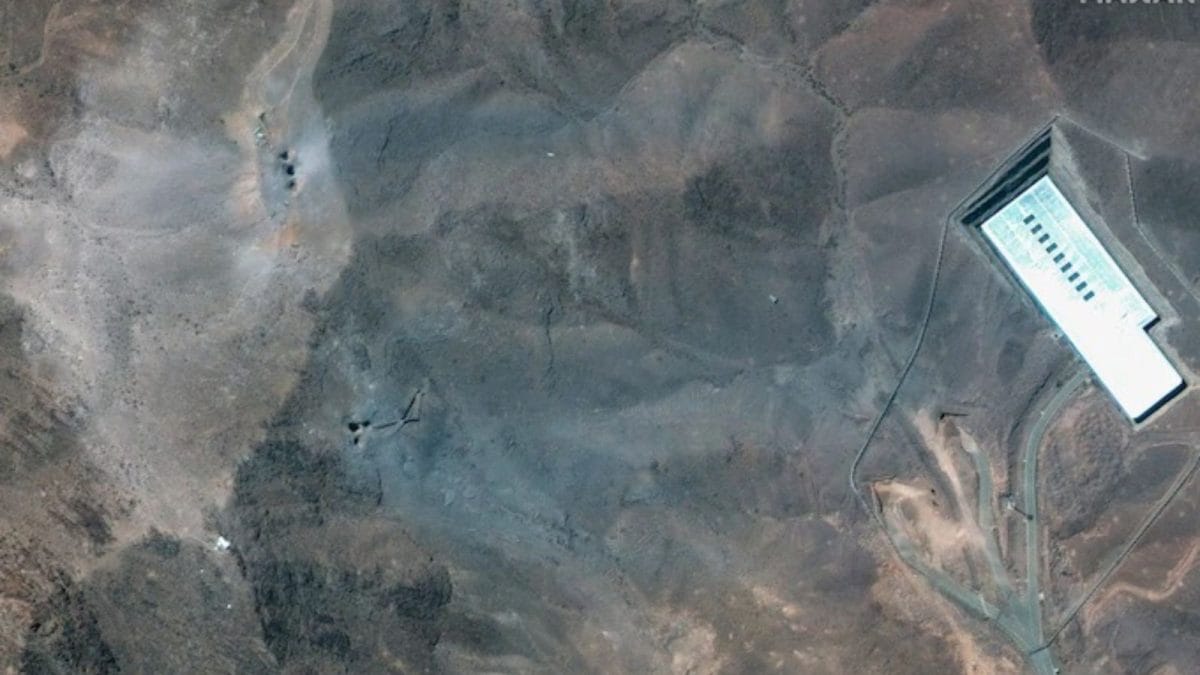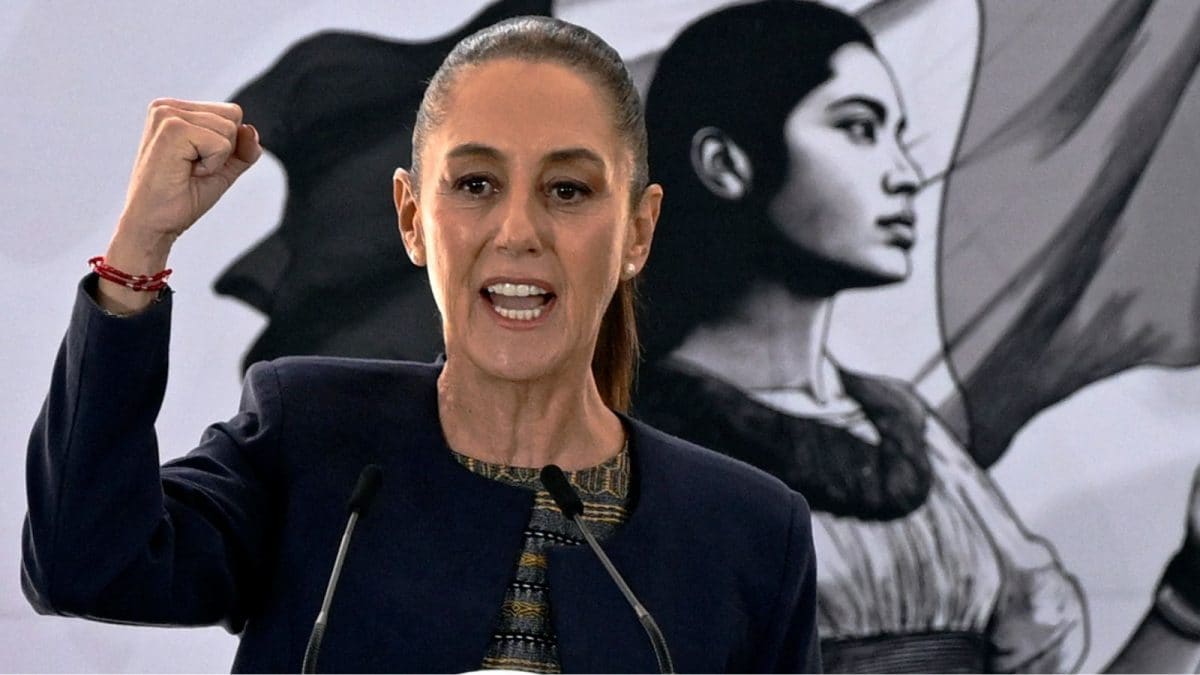ARTICLE AD BOX
After the ice bucket challenge, used to raise funds for the neuro-degenerative disorder ALS, here's the viral Theek Karke Dikhao social media campaign in India. People are sharing images of roads with potholes, dug-up pavements and trash-filled urban water bodies on X and Facebook, and challenging politicians and bureaucrats to fix them.

Reality vs Potential: What people have been served, and what they expect. (Images: PTI/India Today AI-edit)
It's not like the 2014 ALS Ice Bucket Challenge. Nor has it a hook line as quirky as Honey Singh's "Theek Karke Dikhao" from Bhootnath. It's, perhaps, or more accurately, a bit of both. It's a challenge which sounds like the song, also from 2014. That's because the challenge is called, "Theek Karke Dikhao".
The challenge, spearheaded by a UP-based activist-influencer, is a dare by the public, the supreme force in a democracy. People on social media are calling out the civic mess around them, posting photos of cratered roads, ripped-up pavements, garbage-choked lakes, and dustbins spilling onto the streets. To every politician and bureaucrat concerned and who should be held accountable, people are naming and saying, "Fix it, clean it, if you can".
People are also sharing Reality vs Potential (AI-generated) images to push netas and babus into action. Some photos even have the exact coordinates and location stamped right on them.
The challenge is a demand for the bare minimum — basic hygiene, basic aesthetics, and basic safety — from taxpayers who pay and get hopes and promises in return.
And it’s all over X and Facebook, the trend that exploded this past weekend, is now yielding some positive results.
FROM A MISSING ROAD IN JAIPUR TO A NATIONAL CHALLENGE
The "Theek Karke Dikhao" campaign began on X, spearheaded by an Uttar Pradesh-based online activist, who goes by the pseudonym Khurpenchh and has a reputation for amplifying social issues.
Whether it was civil service aspirants gaming the system during the Puja Khedkar controversy in July 2024, or rampant paper leaks in government exams, the activist-influencer, operating from the safety of anonymity, put it all on blast.
On June 29, Khurpenchh says he received a request from a youth in Rajasthan, highlighting a missing road in a housing society approved by the Jaipur Development Authority (JDA). This sparked the activist's first post, calling out the issue and tagging Rajasthan minister Rajyavardhan Singh Rathore. He gave the MLA a virtual tour of the neglected constituency.
"It was Rathore's response," said Khurpenchh, "that made me start the Ye Theek Karke Dikhao nationwide campaign on June 30".
CAMPAIGN SPARKS REALITY VS POTENTIAL TREND
From there on, the campaign exploded, with citizens across the heartland adopting the hashtag #yethikkarkedikhao to share images and videos of local civic issues, crater-like potholes, overflowing dustbins to landfills, dug-up pavements to caved in roads, and trash-filled lakes to filthy roads, the ones you imagine would smell putrid.
The activist's inbox was soon flooded with hundreds of requests to highlight local campaigns. Then, people from several places started throwing the Theek Karke Dikhao challenge to the politicians and bureaucrats concerned.
"It grew as a totally organic social media campaign," Khurpenchh, who has 1.4 lakh followers on X, tells India Today Digital.
The campaign, initially sparked by the activist-influencer's posts, has snowballed into a nationwide campaign.
The call to action has resonated widely, spawning a parallel hashtag, #YeKarkeDikhao, from Honey Singh's hook that even the "Kanpuriya" activist-influencer approves of.
"This is our beloved Chapra. The work of Chapra's Mayor Lakshmi Narayan Gupta and Deputy Mayor Ragini Devi speaks for itself. Jai Ho!," posted Chapra Jila, the Bihar-based cultural and news-focused handle with 44k followers on X.
It posted an image of a city road with a water-filled crater, flanked by an overflowing, open drain – choked with plastic waste. Between the road and the drain, awkwardly placed under a transformer, in a pile of domestic kitchen waste, a group of pigs rummaging through it. Locals went about their day, undisturbed.
"Chhapra plays an important role in pig farming and its in-situ conservation. Such an initiative should be welcomed," Khurpenchh reacted by posting on X.
"The trend is making waves, with over 1.5 lakh tweets and counting!" claimed GemsOfBabus X, a handle with 81K followers that is dedicated to exposing India's infrastructure issues.
A trend of Reality vs Potential images on both X and Facebook too did the job in the age of generative AI. These AI-generated images juxtaposed the grim reality of urban mess with the potential for clean, functional infrastructure. Both AI and the solution are in humans' hands.
NETAS AND BABUS BEGIN TO RESPOND TO PUBLIC PRESSURE
The campaign is already showing results.
Politicians and bureaucrats are beginning to respond to the public's call.
An example came from Uttar Pradesh-based journalist Deepak Gupta, who posted on X: "Regional MLA @ashamaurya_bjp called me and assured me that the road issue will be resolved soon. Just as the Mahmudabad MLA is cooperating with the campaign, all public representatives should take note".
Gupta had, on June 30, flagged a local road's deplorable state.
The positive, constructive, and focused dialogue has encouraged leaders to engage.
Rajasthan minister Rathore on July 2 was seen at Jaipur's Girdharipura Pumping Station.
"Inspected water drainage, sanitation, and disaster preparedness," he wrote on X, tagging along a video of a water-filled site to review flood-readiness.
Khurpenchh says the response has enthused him. "I have planned to make the nationwide campaign even more creative in the coming days," he tells India Today Digital.
It's a good sign that netas and babus are responding, but as Prime Minister Modi pointed out back in 2014 at a workshop in Delhi's Vigyan Bhawan, the ABCD culture -- Avoid, Bypass, Confuse, Delay -- remains a major hurdle.
The way forward, as Chandigarh-based UPSC mentor Shekhar Dutt reminded, lies in ROAD -- Responsibility, Ownership, Accountability, Discipline.
ABCD is the reason many citizens in the country are still deprived of basic services, sociology teacher Dutt points out on Modi's assertion.
"A stands for 'Avoid' -- avoid responsibility as far as possible. B is for 'Bypass' -- shift the blame to another department; if a road breaks, let the sewage department handle it. C means 'Confuse' -- even if responsibility is identified, confuse the process, the role, and who will be held accountable. D stands for 'Delay' -- delay action endlessly, until the monsoon ends, the road collapses, and even the allocated funds are gone," Dutt says in a recent social media video.
People want better governance and faster grievance-redressal, and they're now using social media to demand it, at a time when most of the political class and bureaucracy themselves have taken to social media to highlight their achievements. That's solid logic. The challenge is harder to ignore in today's digital world.
- Ends
Published By:
Sushim Mukul
Published On:
Jul 4, 2025



.png)
.png)
.png)
















 4 hours ago
5
4 hours ago
5









 English (US) ·
English (US) ·